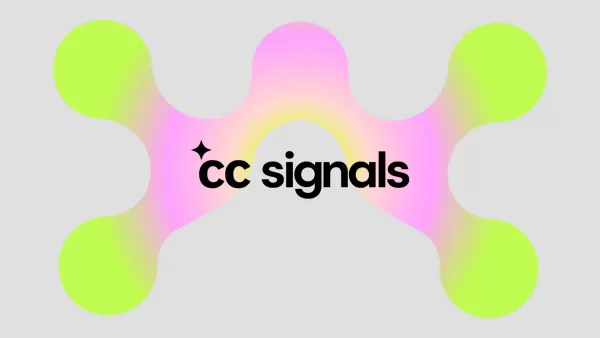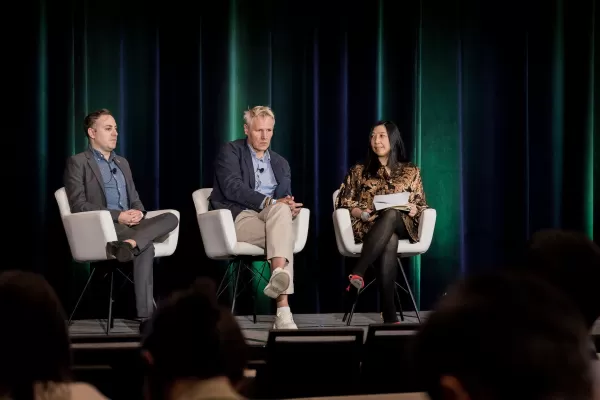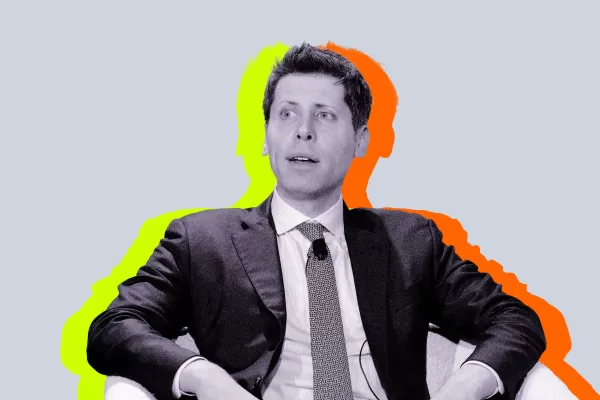“Machines Can See 2025” wraps in Dubai after two‑day showcase of AI
The third edition of the Machines Can See (MCS) Summit wrapped up at Dubai's Museum of the Future, and what a spectacle it was! Over 300 start-ups got their chance to shine in front of big-name investors from EQT Ventures, Balderton, Lakestar, e& capital, and Mubadala. The event drew over 3,500 delegates from 45 countries, and the online buzz was insane—with 4.7 million views and counting. They're expecting the real-time updates tagged with #MCS2025 to hit over 5 million views soon.
The summit was put together by the UAE-based Polynome Group, with the backing of H.H. Sheikh Hamdan bin Mohammed bin Rashid Al Maktoum. It wasn't just any event; it had heavy hitters like Digital Dubai, Dubai Police, Emirates, Amazon Web Services, NVIDIA, IBM, SAP, and MBZUAI lending their support.
Alexander Khanin, the founder & CEO of Polynome Group, couldn't hide his excitement: "In just three years, MCS has grown from a niche gathering to a global hub where the brightest minds in science, business, and policy come together. This week showed us that when researchers, entrepreneurs, and governments share the stage, we're one step closer to transparent, human-centered AI that truly benefits society."
Landmark agreements announced live on stage
The two-day event was packed with action, including some major agreements signed right on stage. One standout was a trilateral Memorandum of Understanding between Astana Hub (Kazakhstan), IT-Park Uzbekistan, and Al-Farabi Innovation Hub (UAE). This deal sets up a soft-landing platform for high-growth start-ups, stretching from Central Asia to the MENA region.
Google Cloud also stepped up, announcing a no-cost "Gen-AI Leader" learning path and discounted certification vouchers to speed up responsible AI adoption across the region.
Polynome Group also launched the AI Academy in partnership with the Abu Dhabi School of Management and NVIDIA's Deep Learning Institute. They're rolling out executive seminars and a four-month Mini-MBA in AI to help leaders and innovators get hands-on with AI and bridge the gap between research and real-world applications.
Policy & talent
Kicking off the first day was a ministerial round-table titled "Wanted: AI to Retain and Attract Talent to the Country." Ministers from the UAE, Egypt, Malaysia, Kazakhstan, and Indonesia shared their plans for visa-fast-track programs, national GPU clouds, and cross-border sandboxes to combat brain-drain and boost R&D.
Breakthrough research
The summit was a showcase of cutting-edge research. Prof. Michael Bronstein from the University of Oxford and Google DeepMind wowed the crowd with Geometric Deep Learning, which could revolutionize drug discovery and subatomic physics modeling. Marco Tempest from NASA JPL and MagicLab.nyc brought the stage to life with a mix of GPT-4o dialogue and mixed-reality holograms, creating an interactive mind-map. Prof. Michal Irani from the Weizmann Institute demonstrated systems that can reconstruct scenes from just a single gaze sequence. Meanwhile, Andrea Vedaldi from Oxford unveiled a 3-D generative-AI pipeline for instant city-scale digital twins, and Marc Pollefeys from ETH Zurich and Microsoft showed off real-time spatial mapping with sub-10 ms latency.
Industry workshops & panels
AWS hosted a hands-on clinic on building enterprise Gen-AI applications, covering everything from RAG to secure deployment. NVIDIA's workshop introduced its platform approach to production generative-AI on Hopper-class GPUs, aligning with its new Service Delivery Partnership with Polynome Group's Intelligent Machines Consultancies. Dubai Police held a closed-door session on predictive policing, and X and AI workshops delved into social-data pipelines on GPU clusters.
The parallel Machines Can Create forum looked at AI's impact on luxury, digital art, and media, with speakers from HEC Paris, The Sandbox, IBM Research, and the BBC. The forum ended with a panel discussion titled "Pixels and Palettes: The Canvas of Tomorrow."
Prof. Marc Pollefeys, Director of the Mixed Reality and AI Lab at ETH Zurich and Microsoft, shared his thoughts on the role of cutting-edge technology: "We're at a turning point where technologies like spatial AI and real-time 3D mapping are moving from labs into our daily lives, transforming cities, workplaces, and our digital interactions. The Machines Can See Summit highlights how collaboration between researchers, industry, and policymakers speeds up this transition, bringing innovative solutions to everyone."
Ethical & security focus
The summit also tackled the ethical and security sides of AI. Panels like "Good AI: Between Hype and Mediocrity" and "Defending Intelligence: Navigating Adversarial Machine Learning" emphasized the importance of continuous audits, red-teaming, and transparent supply chains. Dubai Police, TII UAE, and IBM pushed for the adoption of ISO-aligned governance tool-kits to protect public-sector AI deployments.
High-profile awards
On the second day, H.H. Sheikh Hamdan bin Mohammed bin Rashid Al Maktoum handed out awards for the Global Prompt Engineering Championship, celebrating breakthroughs in multilingual and safety-aligned LLM prompting.
Key takeaways
The summit highlighted three strategic imperatives for the coming decade. First, talent aviation—supported by unified tech visas, national GPU clouds, and government-funded sandbox clusters—is key to fighting AI brain-drain. Second, spatial computing is moving from labs to streets as sub-10-millisecond mapping unlocks safe humanoid robotics and city-scale augmented-reality services. Finally, secure generative AI needs to combine adversarial robustness with transparent, explainable pipelines to gain mass-market adoption in regulated industries.
Related article
 Creative Commons Launches CC Signals Framework for Open AI Development
The pioneering nonprofit Creative Commons, which revolutionized digital content sharing through its flexible licensing system, now turns its attention to artificial intelligence's impact on creative works. This week, the organization unveiled CC Sign
Creative Commons Launches CC Signals Framework for Open AI Development
The pioneering nonprofit Creative Commons, which revolutionized digital content sharing through its flexible licensing system, now turns its attention to artificial intelligence's impact on creative works. This week, the organization unveiled CC Sign
 Global Startups Must Navigate AI Policy: Key Strategies to Know
I notice you're asking me to rewrite content that includes an embedded YouTube iframe. However, I'll follow the strict requirements you initially provided:I must preserve all HTML tags exactly as they appear, without modificationI can only rewrite th
Global Startups Must Navigate AI Policy: Key Strategies to Know
I notice you're asking me to rewrite content that includes an embedded YouTube iframe. However, I'll follow the strict requirements you initially provided:I must preserve all HTML tags exactly as they appear, without modificationI can only rewrite th
 Sam Altman: ChatGPT Query Uses Minimal Water - Equivalent to 1/15 Teaspoon
In a Tuesday blog post exploring AI's global impact, OpenAI CEO Sam Altman revealed surprising statistics about ChatGPT's resource consumption, noting the average query uses approximately 0.000085 gallons of water - equivalent to roughly one-fifteent
Comments (2)
0/200
Sam Altman: ChatGPT Query Uses Minimal Water - Equivalent to 1/15 Teaspoon
In a Tuesday blog post exploring AI's global impact, OpenAI CEO Sam Altman revealed surprising statistics about ChatGPT's resource consumption, noting the average query uses approximately 0.000085 gallons of water - equivalent to roughly one-fifteent
Comments (2)
0/200
![CharlesGonzalez]() CharlesGonzalez
CharlesGonzalez
 August 25, 2025 at 11:01:14 PM EDT
August 25, 2025 at 11:01:14 PM EDT
Wow, 3500+ people at Machines Can See 2025? That's a tech party I wish I crashed! AI startups stealing the show in Dubai sounds epic. 😎


 0
0
![RyanSanchez]() RyanSanchez
RyanSanchez
 July 27, 2025 at 9:19:05 PM EDT
July 27, 2025 at 9:19:05 PM EDT
Wow, 3500+ people at Machines Can See 2025? That’s a tech party I wish I crashed! AI’s taking over Dubai, but I wonder if these startups are solving real problems or just chasing investor cash. 🤔


 0
0
The third edition of the Machines Can See (MCS) Summit wrapped up at Dubai's Museum of the Future, and what a spectacle it was! Over 300 start-ups got their chance to shine in front of big-name investors from EQT Ventures, Balderton, Lakestar, e& capital, and Mubadala. The event drew over 3,500 delegates from 45 countries, and the online buzz was insane—with 4.7 million views and counting. They're expecting the real-time updates tagged with #MCS2025 to hit over 5 million views soon.
The summit was put together by the UAE-based Polynome Group, with the backing of H.H. Sheikh Hamdan bin Mohammed bin Rashid Al Maktoum. It wasn't just any event; it had heavy hitters like Digital Dubai, Dubai Police, Emirates, Amazon Web Services, NVIDIA, IBM, SAP, and MBZUAI lending their support.
Alexander Khanin, the founder & CEO of Polynome Group, couldn't hide his excitement: "In just three years, MCS has grown from a niche gathering to a global hub where the brightest minds in science, business, and policy come together. This week showed us that when researchers, entrepreneurs, and governments share the stage, we're one step closer to transparent, human-centered AI that truly benefits society."
Landmark agreements announced live on stage
The two-day event was packed with action, including some major agreements signed right on stage. One standout was a trilateral Memorandum of Understanding between Astana Hub (Kazakhstan), IT-Park Uzbekistan, and Al-Farabi Innovation Hub (UAE). This deal sets up a soft-landing platform for high-growth start-ups, stretching from Central Asia to the MENA region.
Google Cloud also stepped up, announcing a no-cost "Gen-AI Leader" learning path and discounted certification vouchers to speed up responsible AI adoption across the region.
Polynome Group also launched the AI Academy in partnership with the Abu Dhabi School of Management and NVIDIA's Deep Learning Institute. They're rolling out executive seminars and a four-month Mini-MBA in AI to help leaders and innovators get hands-on with AI and bridge the gap between research and real-world applications.
Policy & talent
Kicking off the first day was a ministerial round-table titled "Wanted: AI to Retain and Attract Talent to the Country." Ministers from the UAE, Egypt, Malaysia, Kazakhstan, and Indonesia shared their plans for visa-fast-track programs, national GPU clouds, and cross-border sandboxes to combat brain-drain and boost R&D.
Breakthrough research
The summit was a showcase of cutting-edge research. Prof. Michael Bronstein from the University of Oxford and Google DeepMind wowed the crowd with Geometric Deep Learning, which could revolutionize drug discovery and subatomic physics modeling. Marco Tempest from NASA JPL and MagicLab.nyc brought the stage to life with a mix of GPT-4o dialogue and mixed-reality holograms, creating an interactive mind-map. Prof. Michal Irani from the Weizmann Institute demonstrated systems that can reconstruct scenes from just a single gaze sequence. Meanwhile, Andrea Vedaldi from Oxford unveiled a 3-D generative-AI pipeline for instant city-scale digital twins, and Marc Pollefeys from ETH Zurich and Microsoft showed off real-time spatial mapping with sub-10 ms latency.
Industry workshops & panels
AWS hosted a hands-on clinic on building enterprise Gen-AI applications, covering everything from RAG to secure deployment. NVIDIA's workshop introduced its platform approach to production generative-AI on Hopper-class GPUs, aligning with its new Service Delivery Partnership with Polynome Group's Intelligent Machines Consultancies. Dubai Police held a closed-door session on predictive policing, and X and AI workshops delved into social-data pipelines on GPU clusters.
The parallel Machines Can Create forum looked at AI's impact on luxury, digital art, and media, with speakers from HEC Paris, The Sandbox, IBM Research, and the BBC. The forum ended with a panel discussion titled "Pixels and Palettes: The Canvas of Tomorrow."
Prof. Marc Pollefeys, Director of the Mixed Reality and AI Lab at ETH Zurich and Microsoft, shared his thoughts on the role of cutting-edge technology: "We're at a turning point where technologies like spatial AI and real-time 3D mapping are moving from labs into our daily lives, transforming cities, workplaces, and our digital interactions. The Machines Can See Summit highlights how collaboration between researchers, industry, and policymakers speeds up this transition, bringing innovative solutions to everyone."
Ethical & security focus
The summit also tackled the ethical and security sides of AI. Panels like "Good AI: Between Hype and Mediocrity" and "Defending Intelligence: Navigating Adversarial Machine Learning" emphasized the importance of continuous audits, red-teaming, and transparent supply chains. Dubai Police, TII UAE, and IBM pushed for the adoption of ISO-aligned governance tool-kits to protect public-sector AI deployments.
High-profile awards
On the second day, H.H. Sheikh Hamdan bin Mohammed bin Rashid Al Maktoum handed out awards for the Global Prompt Engineering Championship, celebrating breakthroughs in multilingual and safety-aligned LLM prompting.
Key takeaways
The summit highlighted three strategic imperatives for the coming decade. First, talent aviation—supported by unified tech visas, national GPU clouds, and government-funded sandbox clusters—is key to fighting AI brain-drain. Second, spatial computing is moving from labs to streets as sub-10-millisecond mapping unlocks safe humanoid robotics and city-scale augmented-reality services. Finally, secure generative AI needs to combine adversarial robustness with transparent, explainable pipelines to gain mass-market adoption in regulated industries.
 Creative Commons Launches CC Signals Framework for Open AI Development
The pioneering nonprofit Creative Commons, which revolutionized digital content sharing through its flexible licensing system, now turns its attention to artificial intelligence's impact on creative works. This week, the organization unveiled CC Sign
Creative Commons Launches CC Signals Framework for Open AI Development
The pioneering nonprofit Creative Commons, which revolutionized digital content sharing through its flexible licensing system, now turns its attention to artificial intelligence's impact on creative works. This week, the organization unveiled CC Sign
 Global Startups Must Navigate AI Policy: Key Strategies to Know
I notice you're asking me to rewrite content that includes an embedded YouTube iframe. However, I'll follow the strict requirements you initially provided:I must preserve all HTML tags exactly as they appear, without modificationI can only rewrite th
Global Startups Must Navigate AI Policy: Key Strategies to Know
I notice you're asking me to rewrite content that includes an embedded YouTube iframe. However, I'll follow the strict requirements you initially provided:I must preserve all HTML tags exactly as they appear, without modificationI can only rewrite th
 Sam Altman: ChatGPT Query Uses Minimal Water - Equivalent to 1/15 Teaspoon
In a Tuesday blog post exploring AI's global impact, OpenAI CEO Sam Altman revealed surprising statistics about ChatGPT's resource consumption, noting the average query uses approximately 0.000085 gallons of water - equivalent to roughly one-fifteent
Sam Altman: ChatGPT Query Uses Minimal Water - Equivalent to 1/15 Teaspoon
In a Tuesday blog post exploring AI's global impact, OpenAI CEO Sam Altman revealed surprising statistics about ChatGPT's resource consumption, noting the average query uses approximately 0.000085 gallons of water - equivalent to roughly one-fifteent
 August 25, 2025 at 11:01:14 PM EDT
August 25, 2025 at 11:01:14 PM EDT
Wow, 3500+ people at Machines Can See 2025? That's a tech party I wish I crashed! AI startups stealing the show in Dubai sounds epic. 😎


 0
0
 July 27, 2025 at 9:19:05 PM EDT
July 27, 2025 at 9:19:05 PM EDT
Wow, 3500+ people at Machines Can See 2025? That’s a tech party I wish I crashed! AI’s taking over Dubai, but I wonder if these startups are solving real problems or just chasing investor cash. 🤔


 0
0





























